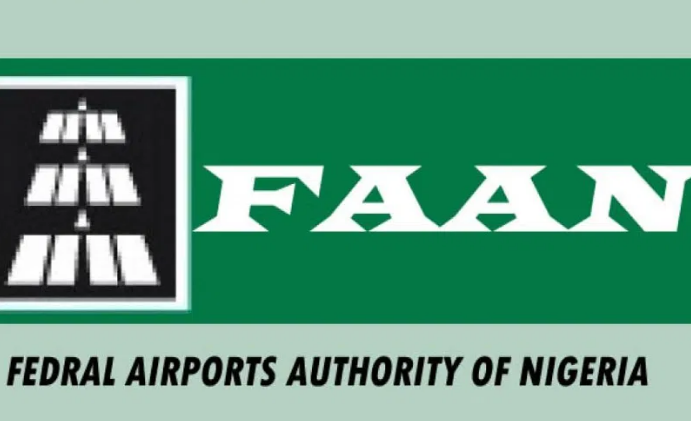Nigeria Records Growth In Cargo, Air Passenger Movement

In the first six months of 2021, Nigeria recorded a total of 126, 541, 949 kg of air cargo made up of 112, 949, 463. 51 kg of imports and 13, 592, 486.12 kg of exports.
That was an improvement compared with a total cargo volume of 67, 279, 833 kg, made up of 60,651, 659 imports and 6, 628, 174 exports recorded in the corresponding period of 2020, according to statistics from the Federal Airports Authority of Nigeria (FAAN) on passenger, cargo and aircraft movement.
In addition, a total of 6, 420, 820 passenger traffic was recorded in the first six months of this year. In the eight months of scheduled flight operations in 2020, Nigeria recorded passenger traffic of 9, 426, 297.
According to the report, from January to June 2021, Nigeria’s busiest airports, Lagos and Abuja recorded domestic passenger of 1, 073, 223; international passenger traffic of 67, 450 and 1, 111, 705 and 247, 422 respectively.
However, the 2021 figures were still lower than that of 2019 before the COVID-19 pandemic, when the first six months recorded 8,023, 450 passenger movement and 79,762,921 kg of cargo.
The President of National Association of Nigeria Travel Agency (NANTA), Mrs. Susan Akporiaye, told THISDAY that the improvement in passenger and cargo traffic was expected, as COVID-19 began to ease, adding that COVID-19 protocols would continue to inhibit air travel according to strategies adopted by various nations.
The improvement was expected; so for me I am not surprised because I know once restrictions starts to ease down there will be increase in travel both passengers and cargo.
COVID-19 definitely will inhibit air travel if restrictions are still in place but the more the restrictions are being lifted, the more the travel industry continues to bounce back bigger and stronger,
she said.
Travel expert and organiser of Akwaaba African Travel Market, Ikechi Ukoh, disclosed to THISDAY that international carriers were adapting their passenger airplanes to freighters because there was high demand for goods than passenger movement.
According to him, cargo freighting may be the future of aviation, so airlines are beginning to adapt and have started the conversion of their aircraft.
“What is happening is that the world is moving more goods than passengers. Almost every major airline is into freighter now. Emirates Airlines has moved some of its big passenger aircraft, the Airbus A380 to IAL Company in Israel for conversion into freighter.
That was what Ethiopian Airlines did last year. They are converting their passenger aircraft to freighter because there are more goods to be moved than passengers.
Passenger movement is yet to rise to that level currently but in Nigeria there is increase in passenger movement but on international air travel, airlines are still using smaller aircraft. I terms of cargo export from Nigeria, no significant milestones yet, but we are still importing goods. The differential between import and export is very high.
Also, air transport specialist and former Managing Director of FAAN, Richard Aisuebeogun said:
Clearly one thing I need you to appreciate more is the way the global industry regulator, the International Civil Aviation Organisation (ICAO) and the International Air Transport Association (IATA) have looked at the outlook for the revival of the industry in 2020, in 2021 and beyond.
A number of speculative outlooks were provided in the past; that the industry would recover. Globally, in 2019 there was industry peak, which was rubbished by COVID-19.
By the end of 2020 there were several forecasts, but IATA looked at the potential financial performance on the industry being revamped globally, knowing that air transport is a bridging gap but unfortunately we have had a resurgence on COVID-19.
It is even said there are three variants of the Delta. When a virus begins to multiply and becomes more lethal, it will certainly draw back the economy,
he said.
On domestic travel, the General Manager, Public Affairs, FAAN, Mrs. Henrietta Yakubu, said due to security fears more people would continue to travel by air even though it was becoming more expensive in Nigeria.
More people will continue to travel by air because road transport is bedeviled by security threats. Although it is becoming more expensive to travel by air but more Nigerians will prefer to travel by air. Thank God there has been improved air safety and we have to give kudos to the Nigerian Civil Aviation Authority (NCAA). In the last nine years there has not been any major accident involving airliner in Nigeria,
she said.
The Director General of IATA, Willie Walsh said COVID-19 leaves air transport industry with $201 billon loss.
In 2020, airlines globally lost $138 billion. Losses will reduce to $52 billion this year. And we expect a further reduction to a $12 billion loss in 2022. Add that up, and the toll that COVID-19 will take on industry finances tops $201 billion.
For the airlines based in this region we are estimating a cumulative loss of $6.8 billion for this year, with an improvement to $4.6 billion in losses for next year. We are, however, past the worst point. And we can see a path towards normality,
he said.

Justin Nwosu is the founder and publisher of Flavision. His core interest is in writing unbiased news about Nigeria in particular and Africa in general. He’s a strong adherent of investigative journalism, with a bent on exposing corruption, abuse of power and societal ills.













